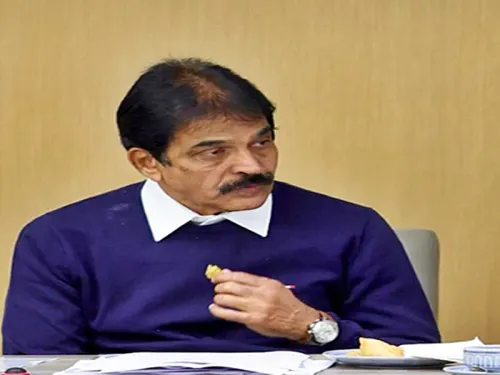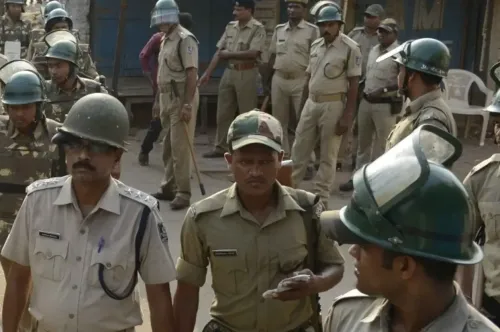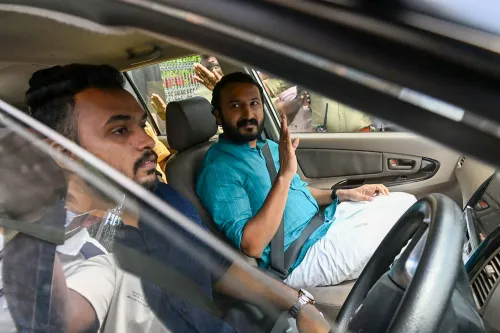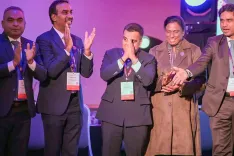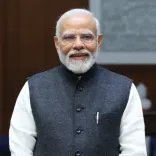Supreme Court Critiques 'Untenable' Suicide Prosecution
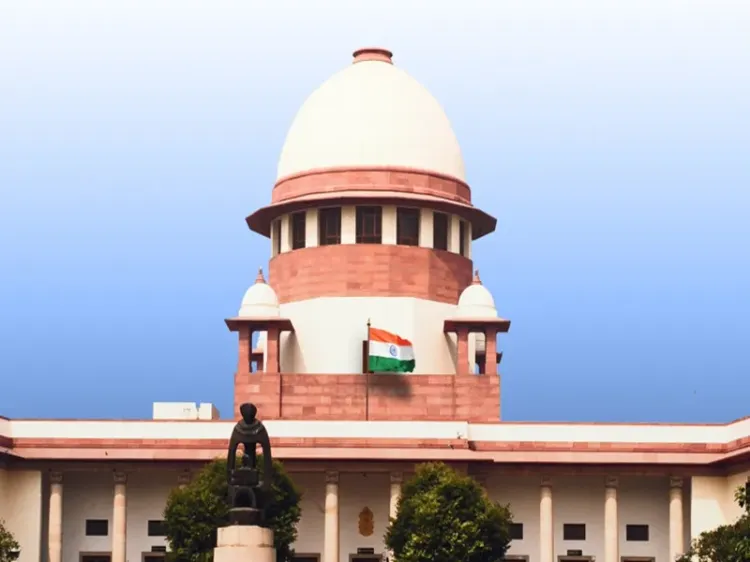
Synopsis
Key Takeaways
- Supreme Court's Criticism on lax enforcement of suicide abetment laws.
- Call for investigative agencies to be educated on legal standards.
- Highlighting the need for caution in framing charges under Section 306 IPC.
- Emphasis on protecting individuals from untenable prosecutions.
- Clarification on the definition of abetment in legal terms.
New Delhi, Jan 17 (NationPress) The Supreme Court on Friday criticized the lax enforcement of the legal provisions regarding the abetment of suicide by law enforcement agencies, emphasizing that investigative bodies must be educated about the law to prevent individuals from facing the misuse of a completely untenable prosecution.
"This Court has, over many decades, consistently reaffirmed the higher threshold, as mandated by law, for Section 306 IPC [Now Section 108 read with Section 45 of the Bharatiya Nyaya Sanhita, 2023] to apply. However, it appears that this is often overlooked. Section 306 IPC is frequently and too easily invoked by the police,” it stated.
The apex court mentioned that while individuals involved in genuine cases should not evade justice, this provision (which penalizes abetment of suicide) should not be utilized against individuals merely to pacify the grieving family of the deceased.
"It is crucial that law enforcement agencies are made aware of the guidelines set forth by this Court concerning Section 306, ensuring that individuals are not subjected to the misuse of a completely untenable prosecution. Trial courts must also exercise significant caution and discretion, avoiding a 'play it safe' mentality by mechanically framing charges, especially when the investigative agencies have blatantly disregarded the elements of Section 306," it further stated.
A bench comprising Justices Abhay S Oka and KV Viswanathan was reviewing a criminal appeal against a ruling from the Madhya Pradesh High Court, which had refused to discharge the appellant from charges under Section 306 of the Indian Penal Code (IPC).
In February 2023, the trial court had framed charges following the emergence of a suicide note indicating that the deceased was being harassed by the appellant.
In addition to the suicide note, witness statements revealed that the deceased had been troubled for several months and had mentioned that Mahendra Awase, the appellant, was pressuring him regarding a loan taken by Ritesh Malakar from Khargone's Shree Saakh Cooperative Society Limited.
The forensic lab had also validated certain audio recordings of conversations between the deceased and the appellant. In its ruling, the Supreme Court asserted that to invoke Section 306, the accused must have actively abetted the act of committing suicide.
It stated: "A person abets the doing of a thing who first - instigates any person to do that thing or secondly - collaborates with one or more other individuals in any conspiracy for the execution of that act, if an act or illegal omission occurs in pursuit of that conspiracy, and for the purpose of executing that act or thirdly - intentionally aids, through any act or illegal omission, the execution of that act.”
Citing a prior judgement, it indicated that to establish an offence under Section 306 IPC, specific abetment as defined in Section 107 IPC (which elucidates ‘abetment of thing’) must be demonstrated on the part of the accused, with the intention of inciting the suicide of the individual concerned as a result of that abetment.
Upon reviewing the suicide note, the apex court noted that its contents indicated that the appellant was demanding repayment of the loan guaranteed by the deceased and given to Ritesh Malakar.
“It cannot be concluded that the appellant, in the performance of his duty to recover outstanding loans on behalf of his employer, instigated the deceased to take his own life. Similarly, the transcripts, even if taken literally, do not suggest that the appellant intended to incite the act of suicide. It certainly cannot be claimed that the appellant’s actions created conditions that left the deceased with no choice but to commit suicide,” the SC added.
Moreover, the court stated that the phone conversations with the deceased, although heated, were not intended to coerce the deceased into suicide.
“The behavior of the proposed accused and the deceased, along with their interactions and discussions leading up to the tragic death of the deceased, must be assessed from a practical perspective, reflective of everyday realities. Exaggerated expressions in conversations should not, without further context, be regarded as incitement to commit suicide,” ruled the apex court.
Determining that the case against the appellant lacked merit, it cleared the appellant and annulled the ongoing trial proceedings against him.

